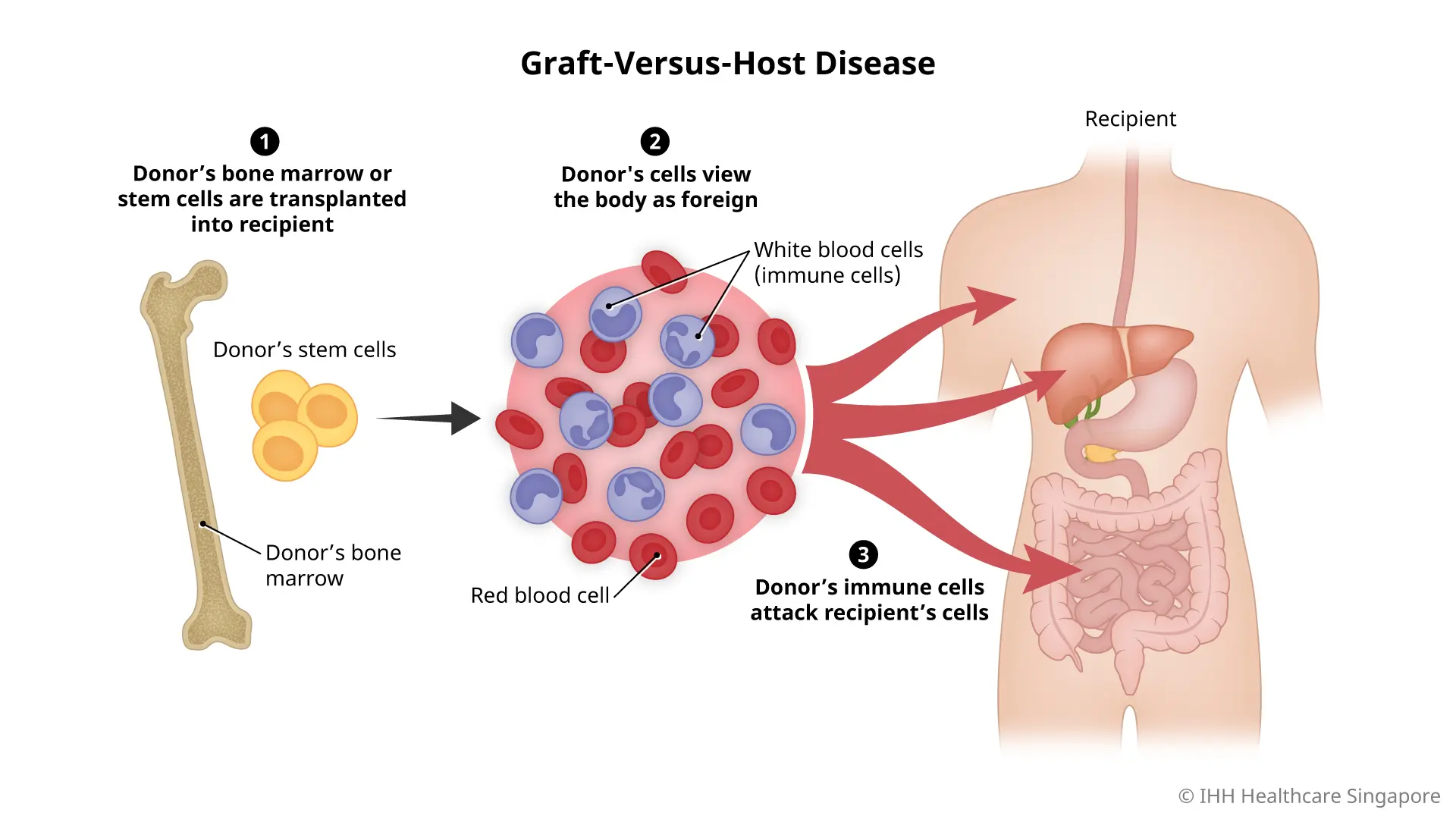
Graft-Versus-Host Disease (GvHD)
What is graft-versus-host disease?
Graft-versus-host disease (GvHD) is a medical condition that occurs when donated bone marrow or stem cells view the recipient's body as foreign and attack the body. This condition is a common complication of bone marrow or stem cell transplants, which are typically used to treat diseases like leukaemia, lymphoma, and other blood disorders.
Types of graft-versus-host disease
GvHD can be classified into 2 main types:
Acute GvHD: Typically occurs within the first few months after a transplant. It primarily affects the skin, liver, and gastrointestinal tract.
Chronic GvHD: Can develop after acute GvHD or independently, emerging as a late complication, sometimes years after the transplant. Chronic GvHD can affect many more organs than acute GvHD and often presents with symptoms similar to autoimmune disorders.
Is GvHD serious?
GvHD can be a serious and potentially life-threatening condition, particularly if it is severe and not effectively managed. The severity of GvHD often depends on how closely the donor's tissues match the recipient's and how the disease is managed.
What are the symptoms of graft-versus-host disease?
Symptoms of GvHD depend on whether it is acute or chronic:
Acute GvHD: Symptoms may include a skin rash that can be itchy and painful, jaundice, liver dysfunction, diarrhoea, and shortness of breath.
Chronic GvHD: Long-term symptoms might include skin changes such as thickening or scleroderma, dry eyes or vision problems, dry mouth or difficulty swallowing, and chronic diarrhoea.
What causes graft-versus-host disease?
GvHD occurs when the donor's immune cells (graft) recognise the recipient's cells (host) as foreign. This can lead to an immune reaction where the donor's immune cells attack the host's organs and tissues.
After a stem cell or bone marrow transplant, the donor's immune cells begin to settle in the recipient's body. If these cells perceive the recipient's cells as different, they start an immune response against the host's body tissues and organs, leading to the symptoms associated with GvHD.
What are the complications and related diseases of graft-versus-host disease?
Complications from GvHD can affect many parts of the body and may include:
- Damage to the liver, lungs, kidneys, digestive tract, and skin
- Long-term scarring and skin changes
- Autoimmune disorders and other immune system issues
How do you prevent graft-versus-host disease?
Prevention of GvHD is primarily focused on the careful selection of donors and the use of prophylactic immunosuppressive medications post-transplant. Methods include:
- Using a closely matched donor
- Treating the stem cell graft with chemicals or T cell selection to remove potentially aggressive immune cells
- Administration of immunosuppressive drugs to help prevent the donor's cells from attacking the recipient's body
This page has been reviewed by our medical content reviewers.
Need help?
For enquiries, please call
+65 6250 0000 (Orchard) or +65 6898 6898 (Novena)
For appointment bookings, please WhatsApp
+65 8111 7777 (Orchard) or +65 8111 5777 (Novena)
 Brain & Spine Care
Brain & Spine Care


